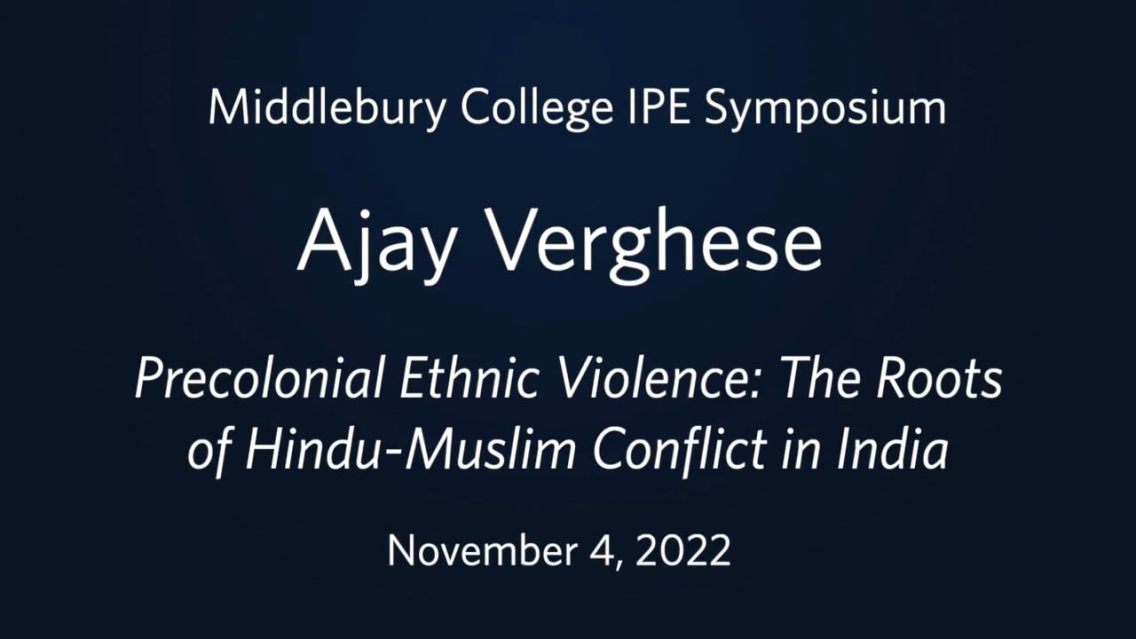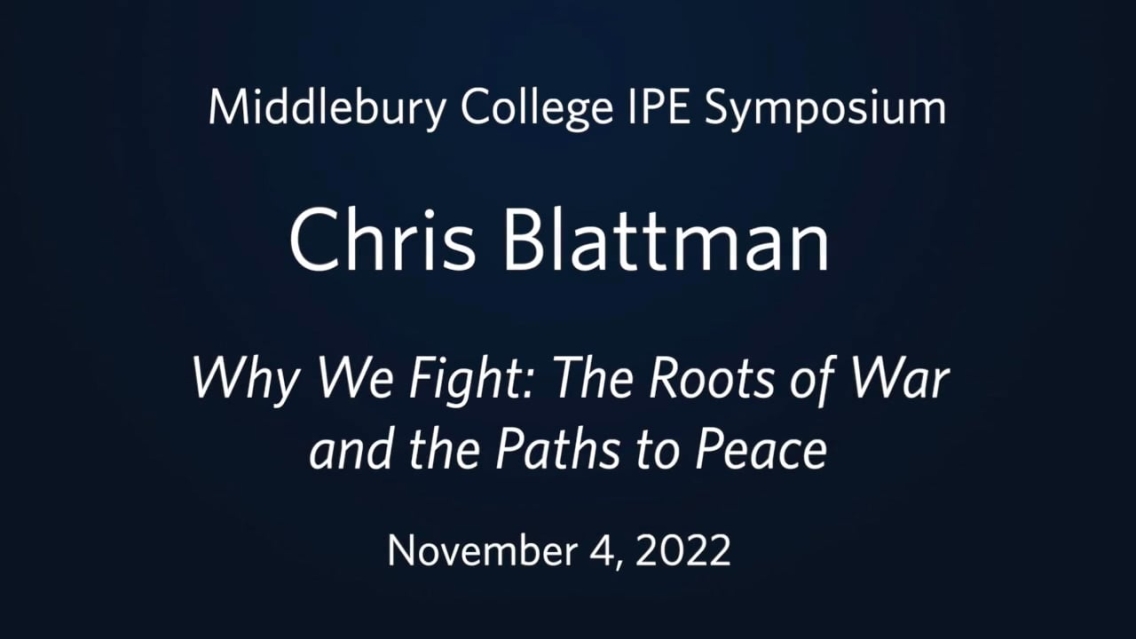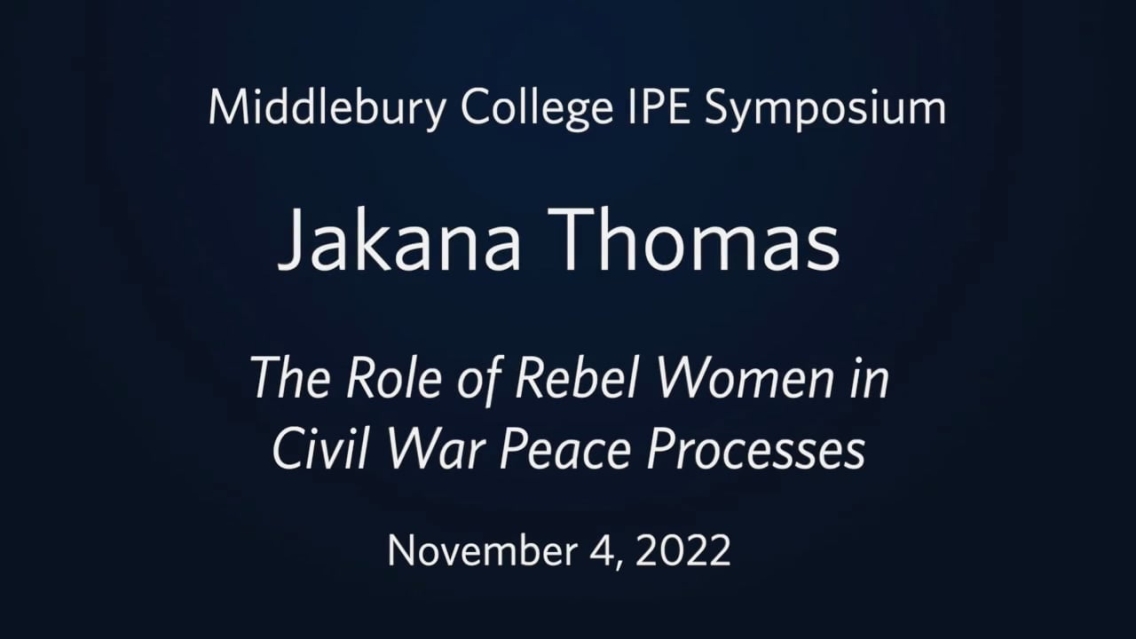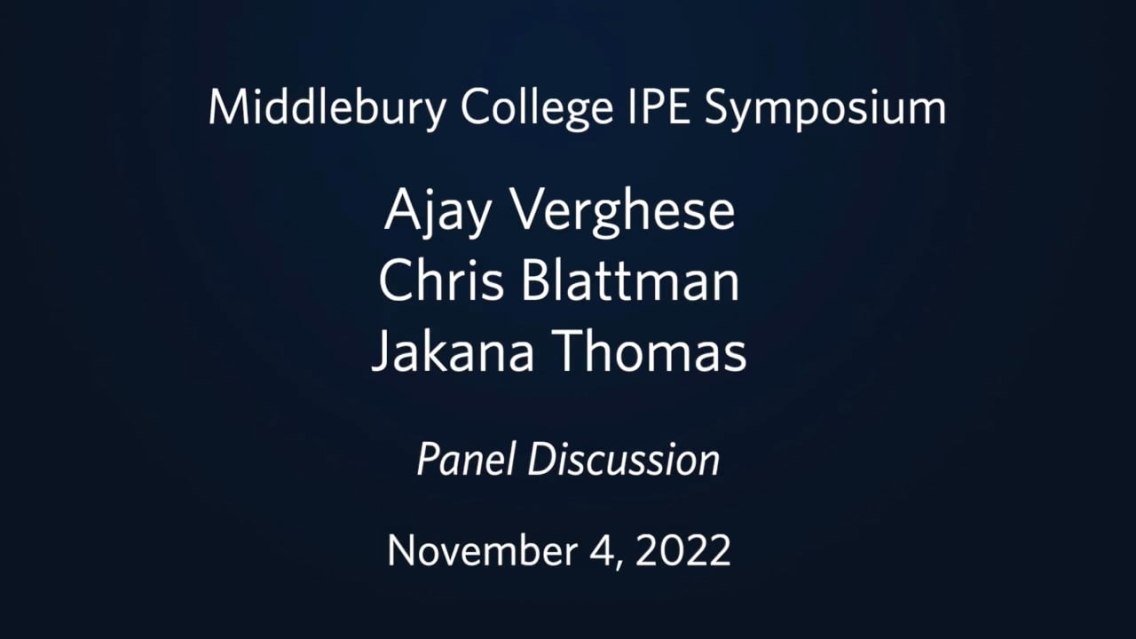2022 Symposium
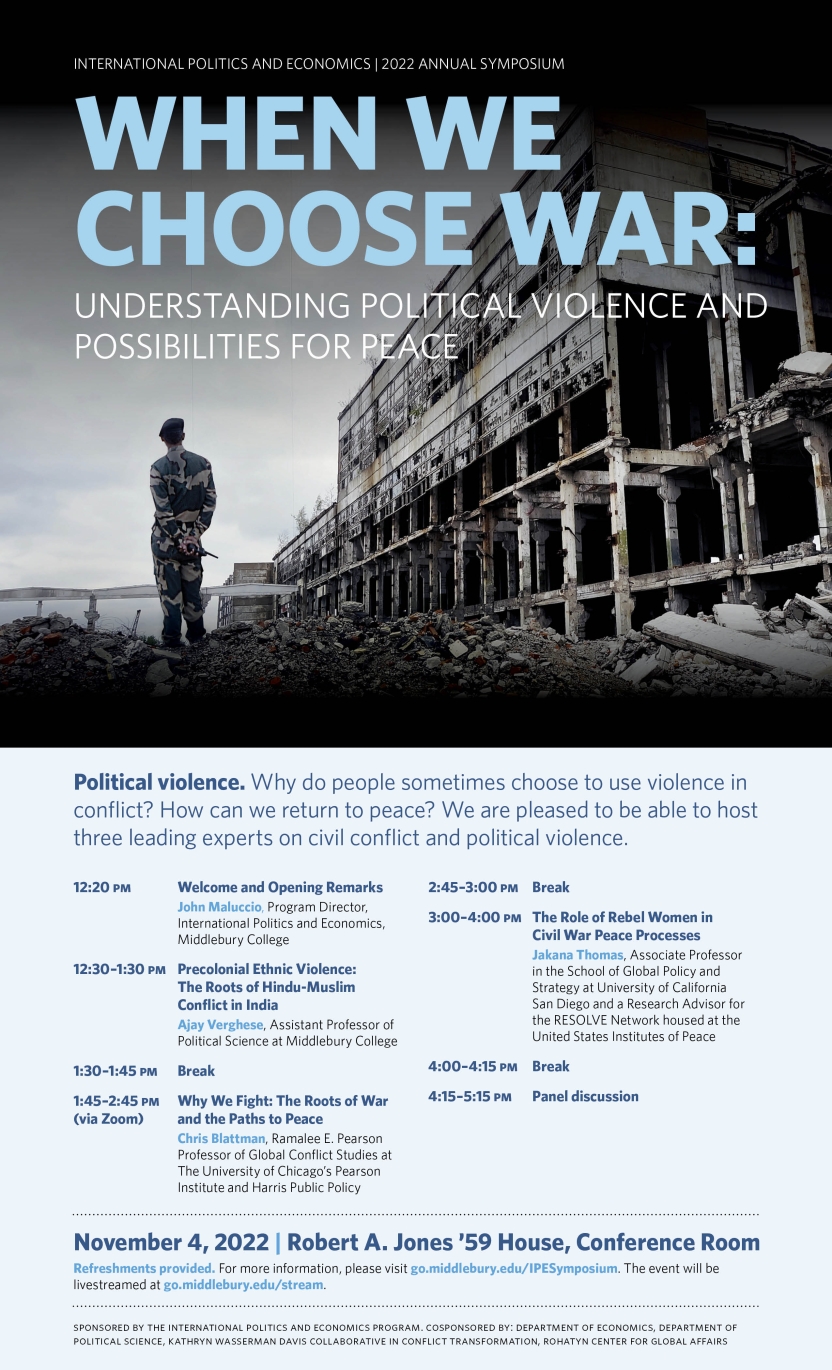
2022 Annual Symposium
November 4, 2022
Robert A. Jones ‘59 Conference Room
When We Choose War: Understanding Political Violence and Possibilities for Peace
This year’s symposium focuses on political violence. Why do people sometimes choose to use violence in conflict? How can we return to peace? We are pleased to be able to host three leading experts on civil conflict and political violence.
12:20 p.m. Welcome and Opening Remarks
John Maluccio, Program Director, International Politics and Economics, Middlebury College12:30–1:30 p.m. “Precolonial Ethnic Violence The Roots of Hindu-Muslim Conflict in India”
Ajay Verghese, Assistant Professor of Political Science at Middlebury College1:30 - 1:45 p.m. Break
1:45 - 2:45 p.m. “Why We Fight: The Roots of War and the Paths to Peace”
Chris Blattman, Ramalee E. Pearson Professor of Global Conflict Studies at The University of Chicago’s Pearson Institute and Harris Public Policy (Joining via Zoom)2:45 - 3:00 p.m. Break
3:00 - 4:00 p.m. “The Role of Rebel Women in Civil War Peace Processes”
Jakana Thomas, Associate Professor in the School of Global Policy and Strategy at University of California San Diego and a Research Advisor for the RESOLVE Network housed at the United States Institutes of Peace4:00 - 4:15 p.m. Break
4:15–5:15 p.m. Panel discussion
Speakers
Ajay Verghese is an Assistant Professor of Political Science at Middlebury College. He received his Ph.D. in 2013 from The George Washington University and was a postdoctoral fellow from 2012-13 at the Asia-Pacific Research Center at Stanford University. His research interests include Indian politics, ethnic violence, historical legacies, religion, and methodology. His first book, The Colonial Origins of Ethnic Violence in India, was published by Stanford University Press in 2016, and his articles have been published in Modern Asian Studies, Terrorism and Political Violence, Journal of Development Studies, Politics & Society, and Politics and Religion. He received the Ted Jelen Award from the Religion and Politics APSA section, and an honorable mention for the Award for Concept Analysis in Political Science from IPSA. He is currently working on his second project, which examines Hinduism and political behavior in India, which has been funded by the Fulbright Program and the American Institute of Indian Studies.
Chris Blattman is the Ramalee E. Pearson Professor of Global Conflict Studies at The University of Chicago’s Pearson Institute and Harris Public Policy. He is an economist and political scientist who studies violence, crime, and underdevelopment. His most recent book is Why We Fight: The Roots of War and the Paths to Peace.
Dr. Blattman was previously faculty at Columbia and Yale Universities, and holds a PhD in Economics from UC Berkeley and a Master’s in Public Administration and International Development (MPA/ID) from the Harvard Kennedy School. He chairs the Peace & Recovery sector at Innovations for Poverty Action (IPA) and the Crime, Violence and Conflict initiative at MIT’s Poverty Action Lab (JPAL).
Jakana Thomas is an Associate Professor at the School of Global Policy and Strategy and Department of Political Science at the University of California San Diego (UCSD) and a faculty affiliate of UCSD’s Center on Gender Equity and Health. She is a Research Advisor for the RESOLVE Network housed at the United States Institutes of Peace (USIP) and associate editor of the H-DIPLO International Security Studies Forum. Her expertise is in political violence with an emphasis on the behavior of violent non-state actors. Her recent work examines women’s participation in rebel, terrorist and community-based violent organizations, how violence influences conflict resolution, the correlates of terrorist lethality and the determinants of successful peace processes. Her work has been published in the American Journal of Political Science, American Political Science Review, International Organization, Journal of Peace Research, Conflict Management and Peace Science and in Security Studies. She is associate editor of the H-DIPLO International Security Studies Forum
Sponsor
- International Politics and Economics Program
Co-Sponsors
- Department of Economics
- Department of Political Science
- Kathryn Wasserman Davis Collaborative in Conflict Transformation
- Rohatyn Center for Global Affairs
Organizers and Contacts
- Will Pyle, Frederick C. Dirks Professor of International Economics
- Kristina Sargent, Assistant Professor of Economics
- Amy Yuen, Professor of Political Science
Overview
Each year, the program in International Politics and Economics hosts a symposium that brings experts to speak on a unified topic of substantive interest to IPE majors, faculty, the broader college, and the public.
Instituted in 2012, the event has covered such varied topics as China’s rise on the world stage, various responses to the global economic crisis, and environmental policy’s relationship to inequality.
The program invites experts from a range of disciplines, including economics, political science, business, sociology, geography, and many others. These experts come from a variety of institutions, both liberal arts colleges and universities, but the symposium also includes scholars at think tanks, in government positions, and at nongovernmental organizations who specialize in issues related to the topic. The goal of each symposium is to consider the political and economic dimensions of a pressing issue from varying perspectives represented by the speakers.
The symposium takes place in late fall and offers a Friday afternoon dedicated to discussion of the topic selected that year. Students moderate each talk and the audience engages the speakers with questions in the presentations. The program in International Politics and Economics welcomes topic suggestions. For more information, topic suggestions, and feedback, please contact the International Politics and Economics program director.

